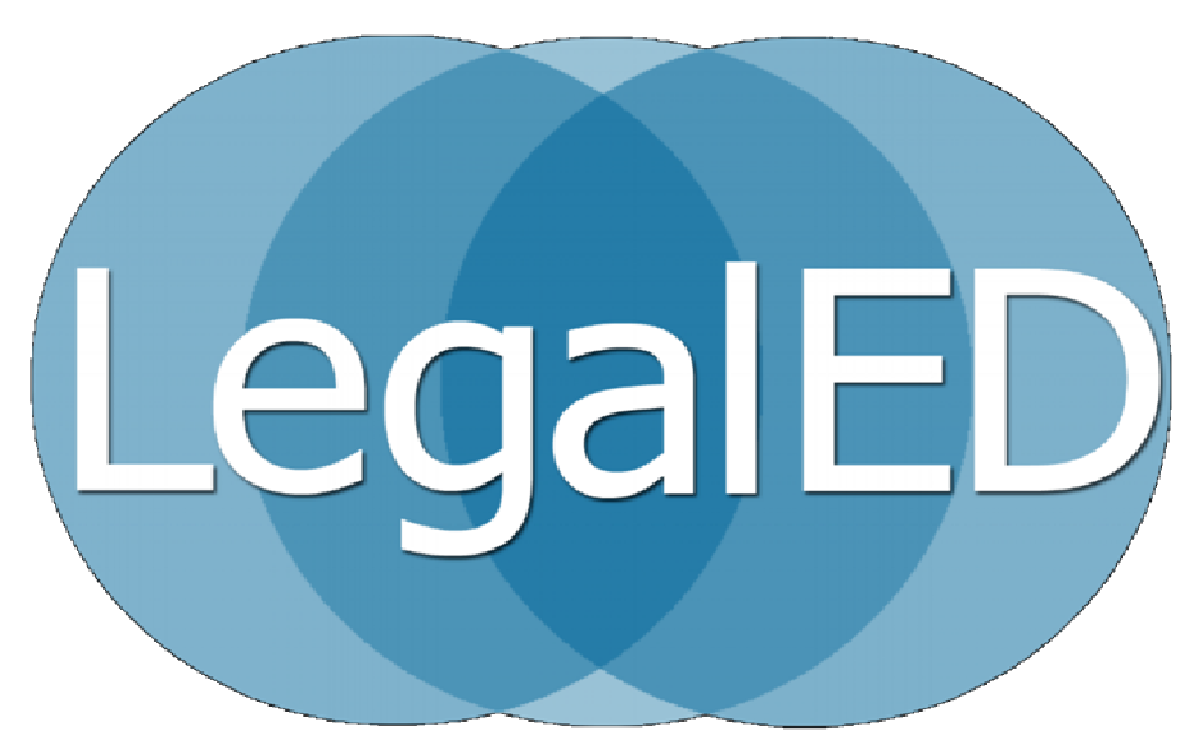Teaching Powerhouse: LegalED & the 1st Igniting Law Teaching Conference
Jeremiah Ho
Assistant Professor of Law
University of Massachusetts School of Law
This past April 4th, LegalED’s first TEDx-styled Conference, “Igniting Law Teaching,” went “live” for one entire day at American University Washington College of Law. I had the great pleasure to be part of the one-day conference that was live-streamed and much-tweeted about during that early-April Friday. While our individual TEDx-style videos are being edited for summer launch on LegalEDweb.com, for me the anticipation of watching our messages collectively spread our excitement and innovations about law teaching gives me pause to think fondly about that moment this past spring. In other words, as self-conscious as I usually am about the sound of my own voice and how short I always look on TV, my worry over image is overshadowed by what I think all of our innovations will bring to the conversation about current legal education.
Speaking honestly for myself, I really wasn’t sure what to make of the Call for Presentations for “Igniting Law Teaching” that a colleague from another law school passed onto me last January. With all the troubles with law schools these days, and the vitriol toward law professors and teaching, I wasn’t sure how a conference like this would contribute to showing the world that there are good, enthusiastic law teachers and new techniques for bringing effective learning to our students. Would it capture a collegial solidarity that could possibly convince the outside world that we do think very critically about our work as instructors as I know many of us do? And could a group of law teachers have anything worthy to share about their experiences in the classroom that just might shift the focus from poor teaching to thoughtful invention and development of our craft? I had only heard rumors of a place on the internet called, LegalEDweb.com, and only knew of Professor Michele Pistone, who pioneers it, by her solid reputation. All I could think to do was to give “Igniting Law Teaching” a shot, respond to the presentation call with an abstract for a ten-minute talk about what I do in my law classes, and see what would come out of it. After all, I love to investigate law teaching and love TED talks—I have wished more law professors would do them. If Michele or Billie Jo Kaufman had said no to me, then I would have at least thought about my teaching and what would be so bad about that?
The whole enterprise of igniting the conference was more ambitious than I had assumed, once I heard that I would be part of it. Although I have been part of several very laudable law teaching conferences in the recent past, the behind-the-scenes collaboration that went into “Igniting Law Teaching” was more intense and passionate than I had ever encountered. Not only did we all have to prepare the content of our talks—which could be tricky when you’re dealing with things like pedagogy and technology—but the TEDx format really put us all to the test in researching exactly the best way to convey our messages in this media. Not only that, but the collegiality of those involved was so evident and infectious from the day of our first teleconference in February that I knew this conference was going to be something special to help bring our ideas about law teaching to light.
My own TEDx-style talk was about bringing active learning opportunities into the classroom—especially in the way I build lessons in my doctrinal classes through an approach that attempts both the teaching of a particular law and practical lawyering skills at the same time. I’ve done this in every law class I have ever taught. In my presentation, I show how to seamlessly incorporate both skills and knowledge about a law together in lesson planning. If a teacher can draw out characteristics of a law that can show off a particular skill, then the professor can design lessons that highlight different skill sets for lawyering throughout the semester. Legal topics in intentional torts lend themselves well to developing fact inquiry skills while a U.C.C. provision in contracts is great for showing statutory reading and construction. I break the method down into three easy steps: (1) find the nature of the law avails itself particularly to showing us a certain skill in legal reasoning; (2) gauge the relevancy of that skill for students; and (3) find a point of execution, a place where my students can discover this relevant mimesis through their curiosity. The video of my talk elaborates more how this is done. But the synopsis here hopefully conveys an example of the kind of presentations to watch for when all of our videos are launched. I hope that our talks will inspire creativity in others law teachers out there to share ideas that will benefit our students and make teaching even more worthwhile.
From more familiar topics, such as constructively applying learning theory into our teaching to smart tips about flipping the law classroom and the use of new technologies, the forty or so of us each brought something special to the conversation that day. The “live” version of the conference that day prompted more than viewings on-line from other law teachers around the country than we had anticipated. Though I was in physical attendance, I can’t wait to see our presentations again and I’m thankful they are preserved in TEDx-style, because there’s so much to learn from each other.
